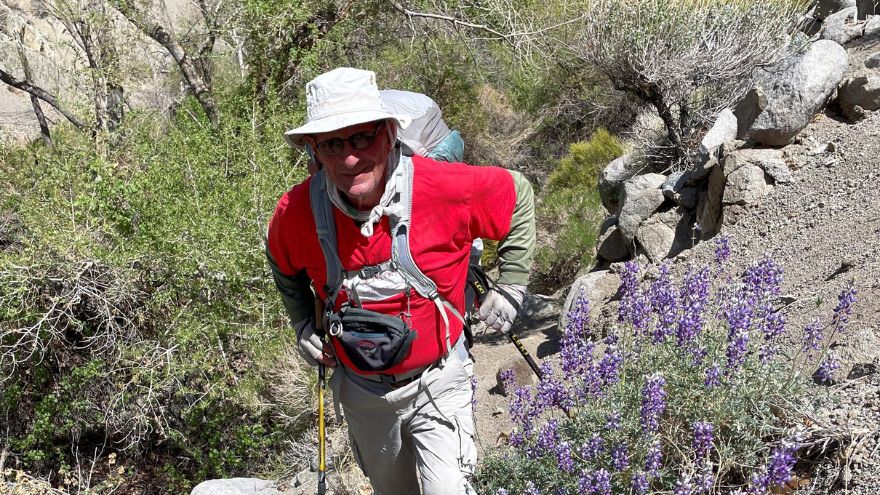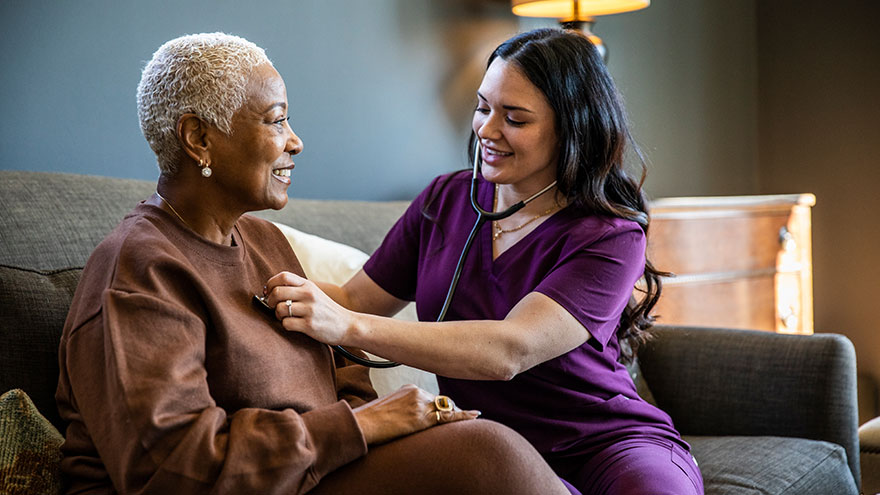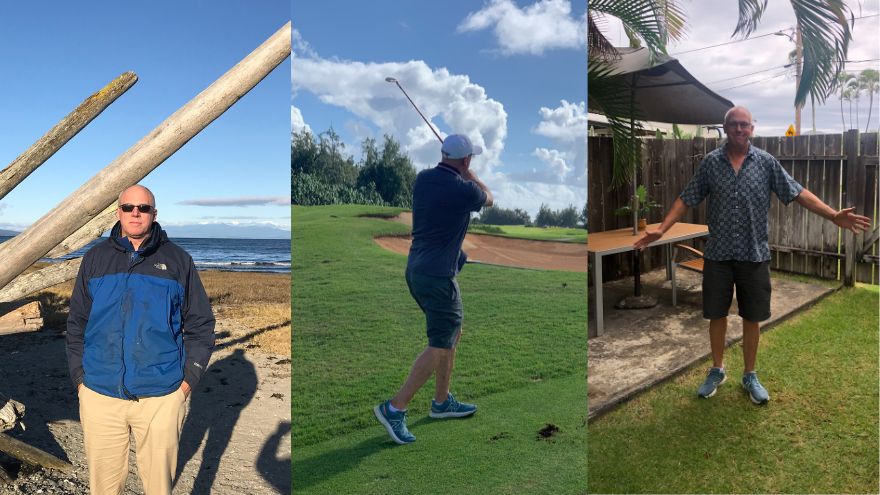Buscar
Results for 'cardiologist'
Clear-
8 Reasons to See a Cardiologist
While February is recognized as American Heart Month, it’s important to prioritize your heart health 365 days a year. Cardiologists play an integral role in our overall health and wellbeing – they are the experts when it comes to preventing and treating heart and vascular diseases. Dr. Jad Al Danaf of Renown Institute for Heart & Vascular Health shares eight reasons to visit a cardiologist. 1. Abnormal EKG The American Heart Association states an electrocardiogram, abbreviated as EKG or ECG, is a recording of the heart’s electrical activity to measure the rate and rhythm of the contractions in the upper and lower chambers of the heart. An EKG detects heart problems or abnormalities. If you have an EKG that shows abnormal results, you’ll want to see a cardiologist. An abnormal EKG can mean many things, such as irregular heart rate, heart rhythm abnormalities in the shape or size of the heart, medication side effects, and more. A cardiologist is most qualified to evaluate an abnormal EKG and determine the cause. 2. Immediate family history of heart disease or sudden cardiac death Knowing your family health history is essential to identify if you’re at risk for certain health conditions such as heart disease. For example, if you’re aware of anyone in your immediate family who had or has had heart problems or passed away from sudden cardiac death. In that case, you’ll want to discuss it with a cardiologist so they can determine if screenings, medications, or lifestyle changes are needed to help lower your risk. 3. Chest pain or shortness of breath with exertion If you have chest pain or shortness of breath that starts or worsens with activity, it may indicate a heart problem, and you should schedule a visit with a cardiologist immediately. Severe chest pain might be a sign of a heart attack or other serious medical emergency. If you’re experiencing severe chest pain, shortness of breath, or any other signs of a heart attack, call 911 immediately. 4. High blood pressure Have you had a high blood pressure reading? If so, it’s recommended to consult with a cardiologist for further evaluation. High blood pressure puts you at risk for heart disease and stroke, as uncontrolled high blood pressure can damage arteries, reducing blood flow and oxygen to your heart and brain.
-
Renown Cardiologist Shares Insight on Warfarin
Renown Health's Dr. Christopher Rowan recently joined a distinguished panel of experts on the "Game Changers in Medicine" podcast to discuss the science behind the discovery of warfarin. Renown Health Cardiologist Dr. Christopher Rowan was just featured on an episode of Game Changers in Medicine, a groundbreaking medical history podcast from Dramatic Health about some of the world’s most significant medical discoveries. The episode, Warfarin: How a rat poison became one of the world's most widely prescribed drugs, dives into the fascinating history of Warfarin and its life-saving effects on humans. During the episode, Dr. Rowan, whose research focus is heart disease and atherosclerosis, is joined by experts Kevin Walters, Historian and Strategic Research Coordinator at the Wisconsin Alumni Research Foundation (WARF); and Ramya M. Rajagopalan, Ph.D. of the Institute for Practical Ethics at UC San Diego. Listen to the episode now or download it wherever you listen to podcasts. History of Warfarin Warfarin prevents blood clots from forming or expanding. The drug is especially important for individuals who have experienced a heart attack or stroke, or are at risk of experiencing either. However, the backstory of the drug is rather fascinating. Beginning in the 1920s, an unknown disease was killing cattle throughout the U.S. and Canada. Desesperado por encontrar una solución, un granjero condujo 200 millas hasta la University of Wisconsin con una vaca muerta, fardos de heno estropeado y una lata de leche con sangre sin coagular. El hombre se cruzó con un científico, cuyo equipo se propuso determinar el componente hemorrágico del heno estropeado, lo que dio como resultado una serie de descubrimientos médicos que revolucionarían la medicina. Tras aprender más sobre la warfarina y cómo la vitamina K podría revertir sus propiedades anticoagulantes, los médicos recetaron por primera vez la medicina para uso humano en 1954. Probablemente sea muy conocida por salvar al presidente Dwight D. Eisenhower después de que sufrió un ataque cardíaco en 1955. Today, Warfarin continues to saves millions of lives each year. “Before blood thinners like Warfarin, people would experience strokes, blood clots in their lungs, blood clots in their legs, blood clots in their hearts, along with countless other clotting disorders - these conditions likely cutting their lifespans short,” Dr. Rowan said during the podcast. “Warfarin revolutionized the treatment of patients who suffer from heart attacks and strokes, helping them to live normal and healthy lives. The drug changed medicine forever and helped make incredible innovations such as mechanical heart valves a reality.” Interview Opportunity Dr. Rowan is available for interviews to discuss the importance of this unique medical discovery and the positive impact it has on many of the patients he treats every day. Envíe un correo electrónico a news@renown.org o llame al 775-691- 7308 para coordinar una entrevista. Acerca de Renown Health Renown Health es la red de atención médica integrada de propiedad y administración local y sin fines de lucro más grande de la región, que presta servicios en Nevada, Lake Tahoe y el noreste de California. Con una fuerza laboral diversa de más de 7,000 empleados, Renown ha fomentado una cultura de excelencia, determinación e innovación de larga data. La organización se compone de un centro de urgencias, dos hospitales de cuidados agudos, un hospital infantil, un hospital de rehabilitación, un grupo médico y una red de atención de urgencias y Hometown Health, la compañía de seguros sin fines de lucro más grande de la región y de propiedad local, Hometown Health. Renown’s institute model addresses social determinants of health and includes: Child Health, Behavioral Health & Addiction, Healthy Aging and Health Innovation. Clinical institutes include: Cancer, Heart and Vascular Heath, Neurosciences and Robotic Surgery. Renown is currently enrolling participants in the world’s largest community-based genetic population health study, the Healthy Nevada Project® . Visite renown.org para obtener más información. About Dramatic Health Dramatic Health, a national healthcare video company, is the producer of the six-part podcast series Game Changers in Medicine. The series premiered in July with an episode about Vitamin K and an enterprising Boston house doctor. The August episode showcased the creation of a smallpox vaccine and its parallels to today's urgent search for a COVID-19 vaccine. Game Changers in Medicine se clasificó en el puesto 27 de los podcasts de Apple en la categoría “Ciencias de la vida en los Estados Unidos” de acuerdo con Chartable al 21 de agosto de 2020. Los dos episodios, un resumen de la serie y material adicional sobre la serie de podcasts están disponibles en www.gamechangersinmedicine.com y se puede acceder a estos materiales desde la plataforma que utilice para escuchar podcasts.
Leer más About Renown Cardiologist Shares Insight on Warfarin
-
Cardiologist-Interventional - Carson Valley Health - Gardnerville, Nevada
Part Time - Eligible For Benefits510701 AdministrationVaries -
Cardiologist non-invasive Reno-Lake Tahoe
Full Time - Eligible for Benefits510701 AdministrationVaries -
Hiking Through Life After TAVR
Renown Health patient, Alden Nash, hiking Death Valley National Park just three months after a Transcatheter Aortic Valve Replacement. Alden Nash isn’t your average 80-year-old. For much of his life, he could be found outdoors enjoying nature and hiking some of the west coast’s highest elevations. A husband and father of two, Alden turned his passion into a career as a Yellowstone park ranger in 1965. Alden believes his passion for the outdoors is responsible for his many years of health – until the unavoidable happened. The Hardest Climb The number one doctor recommendation for a healthy heart – lead a healthy, active lifestyle. Any cardiologist would be thrilled to have Alden as a patient due to his robust physical activity regimen. “Don’t have a TV set or a lounge chair in your house and you’re all set,” said Alden when asked how he has remained so fit throughout his senior years. Unfortunately, many other factors come into play when it comes to heart health, one of which is the reason we are telling Alden’s story today. Familial history - it’s a hot topic in the world of medicine. Understanding your genetic risk factors can help care providers develop updated care plans based on your results. Alden’s family has a long history of high cholesterol, which he avoided for much of his life by staying active. This combined with his age resulted in his first heart attack in December 2021. Doctors later determined that Alden was suffering from a type of heart valve disease known as aortic valve stenosis. Aortic stenosis is the narrowing of your aortic valve opening that impedes normal blood flow. Over time, the leaflets of your aortic valve become stiff, reducing their ability to fully open and close. When the leaflets don’t fully open, your heart must work harder to push blood through the aortic valve of your body. Eventually, your heart gets weaker, increasing the risk of heart failure. People who are most at risk for aortic stenosis include those who have had certain heart conditions present at birth, have chronic kidney disease or have heart disease risk factors such as high cholesterol and high blood pressure. However, generally, aortic stenosis is a degenerative process of aging with no modifiable risk factors. The incidence of aortic stenosis increases rapidly with age and is very common above the age of 80 – with 1/10 having the condition and 1/50 with a problem severe enough to warrant surgery. When symptoms are present, the disease can be rapidly disabling or even deadly, often progressing over several months unless treated.
-
5 Things to Know About Women’s Heart Disease
Heart disease is more common in women than many people think. In fact, it is the leading cause of death in the United States, ahead of cancer and stroke. However, the common signs and symptoms we often associate with men and heart disease don’t always align with women. Thankfully, Renown Health is home to the first women’s heart center in Nevada. The Helaine Greenberg Women’s Heart Center gives women in our community the opportunity to receive exemplary care and education. “At the Women’s Heart Center, we are proud to offer the women of our community the treatments, therapies and education they need to fight this silent killer,” Dr. Danish Atwal. 1. The warning signs for heart disease present differently in women than they do in men. Both men and women may experience chest pain during a heart attack, but the similarity of symptoms ends there. Heart disease is especially problematic for women because more than half of women who die of heart disease have no symptoms at all. Women tend to have subtler symptoms that mimic symptoms associated with common, mild illnesses: Fatigue or weakness Pain, pressure or tightness in the center of the chest Pain that spreads to the upper body, neck or jaw Sweating, nausea or vomiting Sudden dizziness Shortness of breath Trouble sleeping 2. Women are often not treated with the same medications as men, even when they should be. Women are less likely to receive heart medication because their disease is often misdiagnosed or because they do not seek proper care. According to a study done by Harvard Health Publishing in 2020, “A general lack of awareness of women’s heart disease may lead to doctors or patients missing heart attacks in women or delaying their diagnosis. For example, while the frequency of cardiovascular disease tends to be lower in women before menopause than in men, the frequency dramatically increases after menopause, when it accounts for approximately one out of every three deaths in women. 3. Women who have hypertension, high cholesterol, type 2 diabetes or gestational diabetes during pregnancy are at a higher risk of a heart attack in the future. Women who experienced complications related to developing high blood pressure or hypertension during pregnancy had a 63% increased risk for developing cardiovascular disease later in life, as stated by research funded by the National Heart, Lung, and Blood Institute. According to that same study, researchers found that early screenings and monitoring in four target areas – blood pressure, cholesterol levels, glucose levels and body mass index – could provide even more personalized targets to help delay or possibly prevent future cardiovascular events among women.
Read More About 5 Things to Know About Women’s Heart Disease
-
General Cardiology
At Renown Health, we're dedicated to providing exceptional care to patients with a wide range of cardiac conditions. Our General Cardiology Program specializes in assessing heart diseases, identifying existing conditions and developing personalized treatment plans for each patient.
-
TeleCardiología
Heart Care, Close to Home Telecardiology is an alternative to an in-person visit with a heart specialist. It connects you to a Renown cardiologist by using a secure, video-enabled device. It can be used for consultations, examinations and follow-up appointments. Patients are seen from their local rural community clinic, close to work, home and family, minimizing the cost and time of long-distance travel for heart care. Your Telecardiology Visit Before Your Visit You may need to have a heart test or blood draw prior to your visit. In most cases, you can have the test done locally and our heart doctor will have the results when they meet with you via telecardiology. If this is your first visit, your doctor will determine if you need any tests. During Your Visit After check-in, a medical assistant will check your vital signs in a telecardiology room. Videoconferencing equipment will then connect you to a medical assistant to review your health information. Your cardiologist will talk with you remotely. When it is time for a physical examination, the medical assistant in the room with you will follow the doctor's instructions, facilitating the examination. A digital stethoscope will be used so the doctor can hear your heart and lung sounds. After Your Visit Your heart doctor will talk then review their findings and you will be able to ask questions.
-
Excellence in Heart Care Changes a Patient's Life
Being diagnosed with a chronic heart condition like atrial fibrillation (A-fib) can shift the course of your entire life. Embracing heart medications and lifestyle changes become your norm, and thanks to advancements in medicine and medical technology, managing the condition can bring you to a new sense of normalcy. But what if a different option was possible – one that would make medications and activity limits a thing of the past? This became the reality for Renown Health patient Richard Preyer after receiving a hybrid catheter ablation. Thanks to the vigilant surgical care of Shining Sun, MD, a cardiologist at the Renown Institute for Heart & Vascular Health, and his compassionate team, Richard has a new lease on life. Minimally Invasive with Maximal Results An A-fib patient since 2010 who had been living with an unfinished ablation, the 59-year-old Carson City resident turned to the internet to look for alternate solutions. He had heard that the Renown Institute for Heart & Vascular Health was a top-tier location for cardiovascular care. “I changed health insurance plans through Nevada Health Link to ensure I could see a Renown cardiologist,” said Richard. Choosing a cardiologist was an even easier decision for Richard. Dr. Sun’s introductory Find a Doctor video on Renown’s YouTube channel, where he displayed his expertise and determination, was more than enough for Richard to choose him as his cardiac care leader. At his first visit, Dr. Sun reviewed Richard’s records, and noted his prior unfinished ablation. The nine-hour procedure had been performed several years ago. With the enhanced technologies at Dr. Sun's disposal, Richard was excited at the thought of his life potentially being changed for good – with a minimally-invasive solution. Dr. Sun collaborated closely with Richard’s previous and current care teams – including a surgeon who performed a maze operation on him right before his surgery at Renown, to ensure his hybrid ablation was tailored uniquely to him. “Dr. Sun is clearly a very powerful cardiologist with many connections, and the coordination between his team and my other doctors was great,” said Richard. After working on the exterior of the heart in the first phase of the surgery and the interior of the heart during the second phase, Richard’s hybrid ablation was successful, completing the unfinished portion of his previous ablation. “Fixing A-fib can take one to three ablations, and sometimes it never holds,” said Richard. “That is one of the largest reasons why I am so thankful for this procedure and how it ended up.” Life After A-fib Now comes the long, arduous healing process, right? Not for Richard. With only eight incisions (four on each side of his chest), he was able to remove his bandages after two days, and he healed completely in one week. “I was even back to taking three-mile walks within a week of my operation,” said Richard. No more blood thinners. No more activity limits. And most importantly for Richard, no more heart-stabilizing medications that came with side effects he didn’t enjoy. He attributes his enhanced life to Dr. Sun and his team. “I highly recommend Dr. Sun and everyone that works with him,” he said. “Everyone in the group, from the nurses and anesthesiologists going above-and-beyond to the schedulers who helped me navigate the appointment process, made me have a lot of confidence. Their calm demeanors made so much difference.” Today, Richard now enjoys elongated walks in the northern Nevada outdoors, exotic vacations with his wife and, as he describes, “feeling like I’m in my 40’s again.” Learn more about the region's leader in cardiac health, heart and vascular care here.
Read More About Excellence in Heart Care Changes a Patient's Life
-
Programa de insuficiencia cardíaca
At Renown Health, our nationally recognized Heart Failure Program provides best-in-class diagnoses, treatment and management of heart failure. Patients receive specialized care from our dedicated team of experts which includes nurse navigators, clinical coordinators and highly trained cardiologists. We are proud to serve our community and lead the region in heart failure care.
-
Renown Welcomes Director, Cardiovascular Services; Jayson Morgan, MD, FACC
Dr. Morgan embraces a patient-centered approach to delivering a comprehensive cardiac and vascular program in Nevada. Renown Health is excited to announce that Dr. Jayson Morgan has been promoted to serve as Director of the Cardiovascular Services. El Dr. Morgan, quien anteriormente se desempeñaba como jefe de la División de Cardiología, comenzó en su nuevo puesto en septiembre de 6. Dr. Morgan plays a key role in supporting clinical and administrative leaders to embrace a patient-centered approach in delivering the most effective, highest-quality care within the Institute for Heart and Vascular Health and across Renown Health. Dr. Morgan will expand care, enhance clinical outcomes and transform cardiovascular health care through adopting technological advances which promote patient-centered health care that is both convenient and affordable. “At Renown, delivering the highest quality care is our #1 priority. Embracing our vision to improve the health of Nevadans, we are pleased to promote an extraordinary physician like Dr. Morgan to lead and further develop cardiovascular services - and elevate and grow this important Destination Health program to serve the growing needs of our community,” said Tony Slonim, MD, D.Ph., President and CEO, Renown Health. “Unfortunately, Heart Disease continues to be the #1 cause of death in Washoe County, the state and the nation. Dr. Morgan and his team focus on saving lives and reducing the number of people needing heart and vascular interventions. He embodies our core values of caring, integrity, collaboration and excellence, and respect for all, and we are pleased to have Dr. Morgan at the helm of our cardiovascular program.” Dr. Jayson Morgan is a highly accomplished physician leader. He served as both an Internal Medicine Hospitalist and an Internal Medicine resident at UCSF Health in San Francisco, where he specialized in the care of advanced heart failure, pulmonary hypertension, and heart transplant patients. Completó su beca en cardiología en el Cedars-Sinai Medical Center en Beverly Hills, California en 2017 e inmediatamente después se unió a Renown. En 2019, se desempeñó como director del laboratorio de ecocardiografía en Renown. En 2020, fue ascendido a jefe de la División de Cardiología. “The experts at Renown’s Institute for Heart and Vascular Health provide an integrated, multi-disciplinary, patient-centered approach to the prevention, diagnosis and treatment of heart and vascular disease. I am proud to have Dr. Jayson Morgan leading a team of experts who respond to and treat heart and vascular problems that extend from mild to the most critical of emergencies. Our specialized physicians (cardiologists, interventional radiologists, heart and vascular surgeons) work collaboratively with our clinical team to determine the best treatment plan for each patient,” says Rahul Mediwala, MD, Medical Director, Health Services. “High blood pressure, heart disease, and stroke affect one in three Nevada residents. Estas enfermedades son prevenibles y muchos eventos agudos pueden evitarse si se llevan estilos de vida saludables, que incluyen no consumir tabaco, limitar el sodio y adoptar una dieta a base de vegetales, realizar al menos 30 minutos de actividad física por día, limitar o eliminar el consumo de alcohol y seguir los regímenes de medicamentos recetados. Together, we can make a genuine difference in improving the health of our families, friends and neighbors,” says Jayson Morgan, MD, FACC, Director, Cardiovascular Services. “We are pleased to offer a medically supervised, Pritikin-certified, intensive cardiac rehabilitation (ICR) program for those with heart disease. Our expert team creates tailored plans, providing the support heart patients need to make lasting lifestyle changes.” El Dr. Morgan continúa: “Renown ahora cuenta con 3 cirujanos cardíacos, 17 cardiólogos y 16 proveedores de práctica avanzada que brindan una excelente atención cardiovascular. Nuestras capacidades técnicas se han expandido con un Programa de Tratamiento de Enfermedad Cardíaca Estructural que incluye reemplazo de válvula aórtica transcatéter (trans catheter aortic valve replacement, TAVR), reparaciones de la válvula mitral transcatéter (Mitraclip), cierres de agujero oval persistente y cierres de defecto del tabique auricular; con más de 100 procedimientos cardíacos estructurales realizados cada año. Our Cardiothoracic surgeons are the highest volume in the region and consistently exceed national performance standards for operative care. Renown Regional Medical Center was the first hospital in the region to implant the CardioMEMS pulmonary artery pressure monitoring system for advanced heart failure patients, dramatically reducing hospitalizations in these patients. Three interventional cardiologists have joined our team which has expanded our capacity to handle interventions for complex coronary artery disease. Los tres electrofisiólogos de Renown han realizado más de 1000 procedimientos este año, lo cual ha disminuido drásticamente la carga sintomática de la fibrilación auricular en nuestra comunidad. In addition, with the UNR Medical School affiliation, we look forward to even greater contributions to cardiovascular research.” Dr. Morgan graduated from Stanford University School of Medicine and graduated from Yale University with his undergraduate education in Chemical Engineering. “I am excited to continue to help patients enhance their health and well-being,” said Dr. Morgan. “I am grateful for the opportunity to contribute to the great progress that Renown Health is making in becoming the best place to practice medicine and to receive care. I am excited to advance our journey of transformation to value-based care, and to serve patients, clinicians and the community.” To make an appointment with a provider at Renown’s Institute for Heart and Vascular Health, request that your primary care provider make a referral. For more information on Renown’s Institute for Heart and Vascular Health, visit renown.org/Health-Services/Heart-Care. Renown Institute for Health and Vascular Health is the recipient of a number of national awards for outstanding clinical care and service, including: En los rankings de Mejores Hospitales de U.S. News and World Report de 2021, Renown Regional Medical Center ocupa el primer puesto en el estado de Nevada para 2021. Ningún otro hospital en Nevada obtuvo el reconocimiento de U.S. News. Renown Regional Medical Center is High Performing, its highest rating possible, for Heart Failure and Chronic Obstructive Pulmonary Disease. Renown Regional recibió el premio America's 100 Best Hospitals for Critical Care Award™ (2021) del American College of Surgeons por la obtención de resultados clínicos superiores en el tratamiento de embolia pulmonar, insuficiencia del sistema respiratorio, sepsis y emergencias diabéticas. El Regional también ganó el Pulmonary Care Excellence Award (2021) por la obtención de resultados superiores. Designated Level II Trauma Center. For the 30th year, Renown Regional Medical Center is northern Nevada's only designated level II trauma center. Renown Regional awarded The Get with the Guidelines – Heart Failure Gold Plus Quality Achievement award for continually ensuring heart failure patients receive the most appropriate treatment according to nationally recognized, research-based guidelines, as well as AHA’s Mission: Lifeline Gold Receiving honor for the treatment of patients who suffer severe heart attacks. American College of Cardiology’s NCDR Chest Pain ̶ MI Registry Platinum Performance Achievement Award. El Renown Regional Medical Center es uno de los únicos 225 hospitales de todo el país en recibir el premio. The award recognizes Renown’s success in implementing a higher standard of care for heart attack patients and signifies that Renown has reached an aggressive goal of treating these patients to standard levels of care as outlined by the American College of Cardiology/American Heart Association clinical guidelines and recommendations. Acerca de Renown Health Renown Health es una red de atención médica integrada de administración local y sin fines de lucro que brinda servicios al norte de Nevada, Lake Tahoe y el noreste de California. Renown es uno de los mayores empleadores privados de la región y cuenta con una fuerza laboral de más de 7,000. It comprises three acute care hospitals, the region’s only children’s hospital, a rehabilitation hospital, the area’s most comprehensive medical group and urgent care network, and the region’s largest and only locally owned not-for-profit insurance company, Hometown Health. Renown tiene una larga trayectoria y un compromiso de larga data con la mejora de la atención y la salud de nuestra comunidad. Visite renown.org para obtener más información.
-
Las 3 preguntas sobre el colesterol y sus respuestas
With more than 29 million adult Americans having high cholesterol, it’s important to know the facts. We asked Jayson Morgan, MD, a cardiologist with Renown Institute for Heart and Vascular Health, explains the numbers, the risk factors and how to maintain healthy levels. What is cholesterol? There are two types: Low-density lipoprotein (LDL) cholesterol, also known as the “bad” variety, because it can eventually build up within the walls of your blood vessels and narrow the passageways. High-density lipoprotein (HDL), also known as the “good” variety, because it helps remove other forms of cholesterol from the bloodstream. In adults, total cholesterol is considered high if it is more than 200 mg/dL. If the total is more than 200 or if high-density lipoprotein (HDL) levels are less than 40, your heart and brain may not be getting as much oxygen-rich blood as they need. This puts you at greater risk of heart attack and stroke. HDL levels greater than 60 mg/dL can actually lower your risk. What are the risk factors for high levels? Diet high in saturated fat Excess body weight Lack of exercise Smoking Family history Age (as people age, they are more prone to high levels) How often should someone get their numbers checked, and what kind of test is done? The American Heart Association recommends all adults age 20 or older have their cholesterol checked every four to six years. Those with cardiovascular disease or who are at higher risk of it may need their levels and other risk factors assessed more often. Your primary care provider can perform the test, along with assessing your other risk factors to help determine a treatment plan if necessary. The test will likely be one you will need to fast for, meaning no food, beverages or medications for around nine to 12 hours. Your healthcare provider will let you know if, and for how long, to fast. A simple blood test is all that’s needed to get your levels. What are some ways to lower “bad” cholesterol and raise “good” cholesterol? To achieve healthier levels, people should: Eat a heart-healthy diet: Choose healthier fats, eliminate trans fats, eat foods rich in omega-3 fatty acids and increase soluble fiber. Increase physical activity: Exercise on most days of the week. Quit smoking: If you smoke, it’s time to stop. Quitting smoking will improve HDL “good” cholesterol levels. Lose weight: Losing as little as five to 10 percent of your weight can improve cholesterol levels. Drink alcohol only in moderation. And finally, if lifestyle changes aren’t enough, your care provider might recommend medication to help lower your numbers. Renown Institute for Heart & Vascular Health For optimal heart health, the American Heart Association encourages you to “Know Your Numbers” which include: blood pressure, body mass index (BMI), cholesterol and fasting blood sugar, by scheduling a visit with your doctor. These numbers are critical in assessing your current risk for heart disease and stroke. Find a Cardiologist







